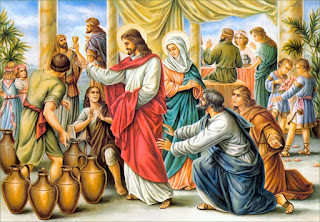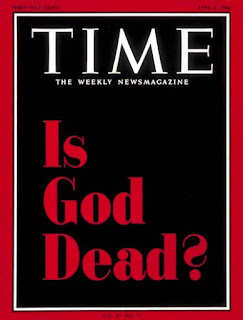 |
| St. Isabel Church, Sanibel Island, Florida |
(Fourth Sunday of the Year (C): This homily was given on January 31,
2016 at St. Pius X Church, Westerly, R.I., by Fr. Raymond Suriani. Read Luke 4: 21-30.)
[For the audio version of this homily, click here: Fourth Sunday 2016]
While I was visiting Jerry and Cathy Swerdlick in southern Florida last
week, I contacted Fr. Chris Senk, the pastor of their parish on Sanibel
Island—to let him know that I was willing to celebrate his 5pm Saturday vigil
Mass if he wanted me to.
I had done that for him a couple of years ago when I was down there on
vacation.
Fr. Senk said yes, and so I celebrated and preached at the 5pm liturgy
at St. Isabel Church. And it went very
well. I “inflicted” on them a homily I
had “inflicted” on all of you three years ago, and I’m happy to say they were
very receptive to the message (as many of you were when I gave it here).
Well, when Mass was over, I processed down the aisle and began to greet
people in the vestibule of the church (as I do at St. Pius). Nothing unusual about that—the only
difference between there and here was that (aside from the Swerdlicks) I didn’t
know anyone in the line.
Or so I thought.
As the last few people were coming out of the main part of the church I
happened to look in that direction, and I saw a smiling face—a smiling face that
nearly gave me a coronary! Thank God my
heart is in good health. It was the last
person on earth I expected to see at that moment: Bishop Tobin. For a second I thought I was on that television
show, “Undercover Boss”!
Then I remembered that a couple of years ago the Bishop had written a
column for our diocesan paper where he mentioned that when he goes on vacation
he sometimes attends Mass “incognito”—in regular lay clothes—to get an idea of
what you lay people are subjected to each week by us priests!
Well apparently I was the one “picked for evaluation” on this
particular vacation.
But it did end well. After I
picked my jaw up off the floor, the Bishop came along in the line and greeted
me very warmly. With that smile still on
his face, he said I had done a great job and that he was really proud of me.
Thanks be to God, because if he had been upset, he might have put me on
the next boat to Cuba!
Which might have made some of you very happy! I hope not—but it might have.
And that’s my point. I received
a lot of positive feedback from the Bishop and from many of the parishioners I
spoke to after Mass last Saturday.
But that’s not always the way it is!
There are times when a preacher proclaims the Word of God on a Saturday
evening or on a Sunday morning at Mass, and he ends up getting a lot of
negative, angry—and sometimes even hateful—feedback.
So he has to be prepared for it.
This truth, by the way, has a certain application to you lay people as
well as to us clergy. As lay people, you
are called to bring the Gospel message into the marketplace in order to
evangelize the culture. But if you do
that nowadays, you will have to stand up for things that many people in our
culture currently reject, and you’ll have to stand against things that many
people in our culture currently accept.
For example, you’ll have to stand up for
the sanctity of human life and against
attacks on innocent human life such as abortion and euthanasia; you’ll have to
stand up for purity and against pornography; you have to stand
up for traditional marriage and against so-called “gay marriage”; you’ll
have to stand up for charity and against materialism (as Pope Francis is
constantly reminding us).
And that will definitely make you unpopular among some. Of course we can all take some consolation in
the fact that whatever negative reactions we might experience from others when
we defend the truth of the Gospel will probably not be as severe as the reaction
Jesus experienced from the people of Nazareth in today’s gospel story!
I can certainly attest to that—since no one has ever tried to throw me
off the edge of a cliff after hearing one of my homilies.
At least not yet!
And what was it that got these people so upset in the synagogue that
day, as they listened to Jesus give his first “sermon”?
It was LOVE—specifically God’s love for people who are not Jewish. That,
believe it or not, was what enraged them!
Notice the two people Jesus mentioned in his talk, both of whom received
special blessings from God: the Sidonian woman, whom the Lord saved from
starvation (along with her son) through Elijah the prophet, and the Syrian army
commander, Namaan, who was healed by God through the prophet Elisha.
Both were gentiles; that is to say, both were not Jewish.
Jesus used those examples for a reason. He wanted to make clear to the people in the synagogue
that God’s love extends to all human beings, not just to the Jews.
Here’s how Scripture scholar William Barclay described the situation: “What
angered the people was the apparent compliment that Jesus paid to
gentiles. The Jews were so sure that
they were God’s people that they utterly despised all others. They believed that ‘God had created the
gentiles to be fuel for the fires of hell.’
And here was this young Jesus, whom they all knew, preaching as if the gentiles were specifically favored by
God. It was beginning to dawn upon them
that there were things in this new message the like of which they had never
dreamed.”
Actually, for the men and women in the synagogue of Nazareth that day,
the idea that God loved all people was nothing short of a nightmare! And they tried to put an end to the nightmare
by putting an end to Jesus, which, of course, they were unable to do.
And how did Jesus respond to this rejection? Well, let me tell you how he did NOT respond:
he did NOT respond by changing his message!
He did not respond by changing the Gospel! We have no record of our Lord either
recanting or contradicting this teaching he gave at the very beginning of his earthly
ministry. Not once did he ever deny the
universality of God’s love. Quite to the
contrary, he vigorously affirmed it in places like John 3:16, in that passage
where he said to Nicodemus, “For God so loved the world that he gave his only
Son, so that everyone who believes in
him might not perish, but have eternal life.”
Everyone in that text means EVERYBODY—Jew and gentile—without exception.
Jesus was consistent—perfectly consistent! He was perfectly consistent in what he taught (which was the truth); he
was perfectly consistent in the way he
taught what he taught (he did it with love); and he was perfectly consistent in
living what he taught.
The challenge for us is to be like Jesus—even when our boss isn’t
watching.




